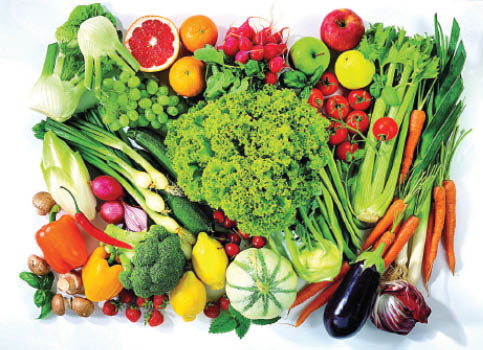

In the times gone by, when buying food, all we used to look for was ‘adulterants’. In most cases these were visible to a watchful eye. In fact simple actions like going to a ‘reputable’ shop or buying products marked ‘Quality Certified’ were a good bet. When possible, an additional step was to use a simple screen or filter to winnow (separate out) admixtures like small pieces of stone in grains or powdery foods. This penchant for having clean, nutritious food resulted in quaint yet interesting rituals in many parts of the world. In certain Asian cultures the man of the house would go out every morning to the local market to bring home the freshest of produce (vegetables, fruits, fish etc.). In parts of India the ‘cook’ of the family would be addressed with respect, by all members of the family, as ‘maharaj’ (king). However, with the increasing pressures of mass-urbanisation, ‘factory-farming’ has replaced traditional foods. Well-stocked shelves in super-markets, with their flashy labels, now suggest that the consumer has ‘choice’ and can make the right decisions on what to feed the family. However, what has been hidden from view is alarming. A potent killer-cocktail has been insidiously entering our kitchen, in the form of chemical fertilizers, hormones and pesticides. In the case of meats, there are liberally used antibiotics as well. All this has a demonstrable link with the wide spread of chronic diseases, which have been further exacerbated by sedentary lifestyle choices and passive leisure activities.
The amount of pesticide used on different fruit and vegetable crops can vary greatly – even from one field to another, or one year to another. Monitoring agencies have been quite unable to keep track of its usage. Even some so-called ‘organic’ foods are not always ‘clean’ in this respect! Some environmental organisations, like the Environmental Working Group (EWG) in the US, have sampled large groups of fruits and vegetables to determine which non-organic foods most consistently contain pesticide residues. EWG points out that there is a growing consensus in the scientific community that small doses of pesticides and other chemicals can have adverse effects on health, especially for certain stages such as pregnancy, infant-feeding, childhood, sickness and convalescence, and for the elderly. Monitoring cells are being set up in developing countries too. For example, in India, since 2005, the Department of Agriculture and Co-operation, Ministry of Agriculture has been monitoring pesticide residues. They have been detected in 9.2% of all samples, with 1.5% being above permissible limits. Since May 2012 the Indian Agricultural Research Institute (IARI), New Delhi, has started a monthly monitoring programme in select centres of every State as part of the All-India Network Project on Pesticide Residues. In early March 2014, the High Court of Delhi declared that much of the produce sold in the open markets is unfit for human consumption. For more, http://www.naturalnews.com/044257_produce_india_pesticide_residue.html#ixzz3LZC85Wkd.The hidden portions of the icebergs are grudually emerging into view, and in many cases there is cause for alarm. In this repect, the work of, and the pressure exerted by, NGOs like GreenPeace should be lauded.
Tip of the Week
If pesticides are present on the surfaces of your fruits and vegetables, you can definitely remove a substantial amount of them through careful washing and light scrubbing. However, you cannot remove all of them, nor can you remove pesticides that have been incorporated into the fruits and vegetables while they were growing. To help promote the health of the planet as well as your own health, it’s best to buy organic whenever possible. However, ‘Certified Organic’ kind of labels are being used too freely now. It is important to find out which agencies are certifying and how robust are their practices? Especially when consuming the following ‘Dirty Dozen’ which seem to have the highest pesticide load: Apples, Strawberries, Grapes, Celery, Peaches, Spinach, Sweet Bell Peppers, Nectarines, Cucumbers, Cherry Tomatoes, Snap Peas (imported) and Potatoes. Keep a good track on Hot peppers and Blueberries also, as these may contain organophosphate insecticides, which EWG characterises as highly toxic.
For more: http://www.ewg.org/foodnews/summary.
Nature’s Wonder Food(s) of the Week: ‘Clean’ Foods
Nearly all of the data used has taken into account how people typically wash and prepare their produce - for example, apples were washed and bananas peeled before testing. In North America, the relatively ‘Clean’ foods, which show the lowest pesticide load in various tests, are those that are the safest, conventionally grown crops: e.g. Avocados, Sweet Corn, Pineapples, Cabbage, Sweet Peas (frozen), Onions, Asparagus, Mangoes, Papayas, Kiwi, Eggplant, Grapefruit, Cantaloupe, Cauliflower and Sweet Potatoes. It is especially important to buy meat products from reputed sourcing agencies. Supermarkets of repute provide clear-labelling, which is very helpful. The good ones also have a separate ‘area’ for ‘Antibiotic & Hormone Free’ or ‘Open Range’ produce.
For Education purposes only; always consult a Healthcare Practitioner for medical conditions
Read More...